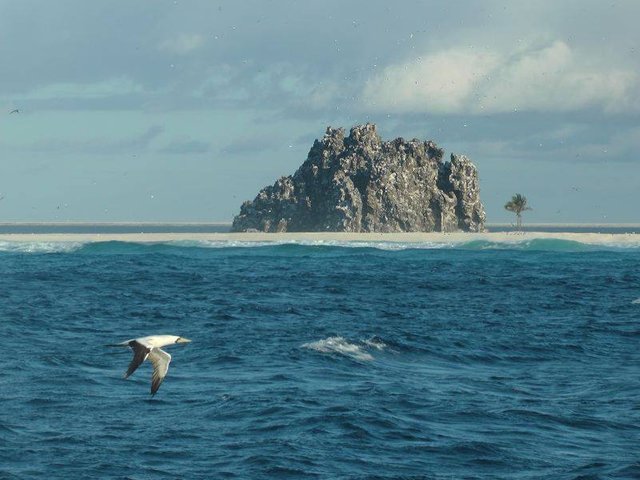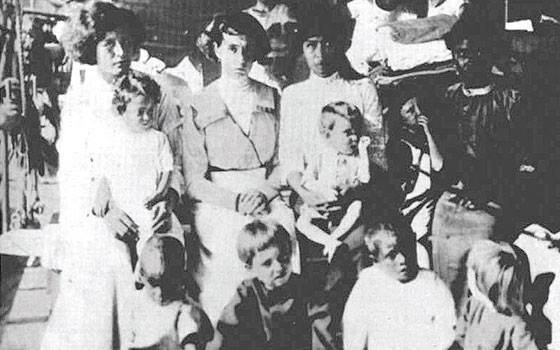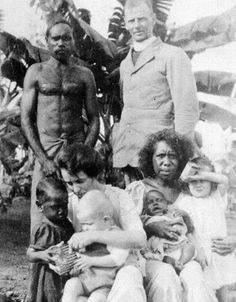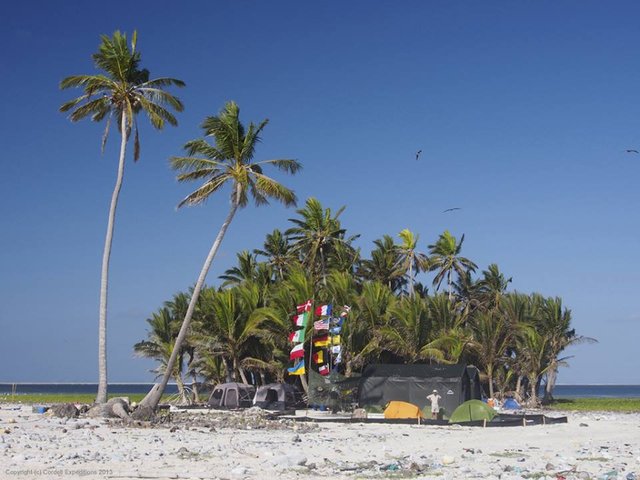Clipperton: Island of dreams, ambitions and tragedies
What was the charm he exercised over men and nations that tiny atoll six square kilometers, located in the Pacific Ocean? The presidents and emperors demanded, European and American politicians and industrialists. Small in size but enormous in history and legend, its former name was left perfectly: the Isle of Passion

Clipperton: Island of dreams, ambitions, tragedies
the exhausted Alicia Rovira dropped into the arms of his father, who had gone to fetch her and her children, the port of Salina Cruz, in 1917. Don Felix Rovira hectic or a fragment of what did not imagine that his daughter had been through in recent years. Be it had gone so happy to Orizaba, the arm of her husband, Captain Ramón Arnaud! He was glad the girl, had married in style at the Grand Hotel de France on July 24, 1908, and her husband was already, since 1906, the governor of Clipperton Island designation by the mismísmo Don Porfirio.
Eight years later, she returned to Mexico, a widow with her skinny children, sunburnt Pacific. They brought in tow a terrible story: the tragedy of the Passion Island, the old name in Spanish maps was given to the island they had moved Alicia and Ramon.
The couple was a toy of chance, fate. The Mexican government had raised on the island a huge lighthouse, equipped with an oil lamp with 10 thousand candles, and there had sent a military garrison headed by Arnaud. It was the way that Don Porfirio, outmaneuvered Napoleon III, claiming Mexican sovereignty over the place.
Between 1908 and 1913, the small garrison lived in some comfort: every two months came a ship from Acapulco. He brought news, documents, instructions and provisions, for Clipperton, in its smallness, was also sterile. The only thing fructificaba were coconut trees.

The tragedy set foot on the island with the bursting of the Madero revolution. The resignation of Diaz and the arrival of Madero to power moved to Mexico, but for the people of Clipperton only meant misery and disaster. The Mexican ship was delayed for anguish of the inhabitants of the island. In late 1911, Arnaud and his family could travel to Mexico, only to learn that Don Porfirio was no longer president and had left entrusted the fate of the island to international arbitration would issue the King of Italy.
Arnaud spent a couple of years in Mexico. He fell Madero and Huerta government promoted him and sent him back to Clipperton, with the assurance that there would be no further delays in the boat, which was vital to survive on the island.
But neither Huerta nor Arnaud had that in less than a year, the revolution would charge a force unimagined. The ship traveling regularly to the island was captured by opposition troops Huertismo, and sank. Thus, it was death that intervened in Clipperton.
For an American schooner they learned of the civil war, and the bursting of the First World War. The US cruise that offered them back to Mexico received with surprise the captain's unwillingness Arnaud would remain there until the government gave new instructions.
Arnaud did not know, but was signing his death warrant. Disease and famine had decimated garrison. When he rejected the offer of the Americans, there were only 14 men, six women and 6 children.
Coconuts, fish, poultry and eggs became their diet; they would have died of scurvy not for the fruits of palm trees. Coconuts, reserved for women and children, gave them life choices; men began entering delirium.
In September 1915, Arnaud said he saw a boat; with his men boarded a boat to try to catch up, but the boat capsized and all died, if not eaten by the sea, swallowed up by sharks. There was only an adult male on the island: the lighthouse keeper Victoriano Alvarez.
Lighthouse keeper was said he was crazy; and if it was not, the conditions exceeded. "King of Clipperton" He proclaimed and began sexually abusing adult women who remained on the island. Desperate, the women decided to assassinate him. One of them, Tirsa Rendon, reached agreement with Alicia Rovira. When the lighthouse keeper demanded the presence of the widow of Captain Arnaud, between them they attacked him with a hammer.
terrible coincidence: as soon as the lighthouse keeper was concretized murder, appeared on the horizon the US ship Yorktown, which collected the survivors: 4 women and 7 children, whom he took to Mexico. Only after some time, he learned of the tremendous history of Mexicans caught in Clipperton.
THE DISPUTE DIPLOMAT. Clipperton was present in the territorial boundaries of the constitutions of 1824 and 1857. When the 1917 Constitution was enacted, Clipperton was still in the Magna Carta, but was removed from the text in 1934, following the international failure that led to France's sovereignty place.
What was what happened? Throughout the years, has been interpreted as an error by President Porfirio Diaz, he had requested arbitration on the dispute with France for possession of the island, which, incidentally, was resolved in favor of France until 1931. In 1934 , Mexico expressed its agreement with the ruling, which was only the culmination of many projects where business ambition led the roost.
During the last 300 years, they have claimed for himself the sovereignty of the island: from empires to industrial. In the mid-nineteenth century, in 1856, the American Guano Mining Company sought to take control of the island. Since it is covered by tons of guano from boobies that abound on the island, Americans saw a safe and fruitful business. Two years later, a French mission declared that Clipperton belonged to the empire of Napoleon III. The occurrence failed because the envoy at the time, Victor Le Coat, never set foot on the island, drew up a report on board a merchant ship, and they did not think the best thing to send the minutes to Hawaii.
In 1898, the US tried again, take control of the island. Had in those years a very peculiar law, which allowed its citizens to exploit the guano fertilizer they could find on any island ... that did not belong to any country. The detail was that Mexico itself claimed its sovereignty over Clipperton.
While Don Porfirio gave the diplomatic battle, his foreign minister, Ignacio Mariscal, was arranged with the president of the Pacific Island Company to which he sold the operating rights, for twenty years! the happy guano.
These rights were purchased in 1906 by British Company of the Pacific Islands. It seemed that things would walk: a pier was built team took to process the guano. One of the employees of the English company, the German Gustav Schulz, thirteen planted coconut trees to lessen the desolation of the island. Schulz did not know, but at the time, those coconut trees saved his life Mexicans trapped in Clipperton.
Reality in 1908 reached guano operators: they had found no market for their goods. International prices for fertilizer guano went down the drain, and stay on the island ceased to be profitable. The company stopped Clipperton and closed two years later.
But those two years he worked on the island were something like happiness: more than one hundred employees operating in Clipperton, and Mexico built the lighthouse and determined the establishment of the military garrison led Ramón Arnaud.

Clipperton ETERNITY. From a literary perspective, the history of Clipperton Island is perfect; It has everything: love, ambition, high-level politics, international disputes, hope, tragedy, sex, crime and death. It is no wonder, therefore, that it has become repeatedly subject for novelists, playwrights and filmmakers even without excluding the descendants of Arnaud, who see the captain an indisputable example of loyalty to the homeland. But although no longer a Mexican island, the ancient Isle of Passion refuses to disappear from our memory.
Desolation is synonymous with life in Clipperton. Some explorer reached 4 million estimate the population of crabs fill in soil of the island. Boobies birds of various species constitute the other large population group on the island. Disappeared centuries vegetation, barely survives a handful of coconut trees on more than one occasion saved the Mexicans of starvation.
